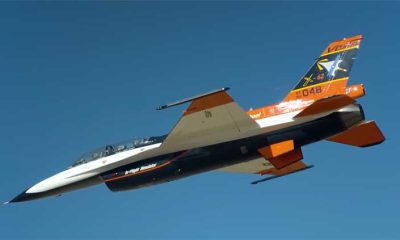A move by Beijing to bar US firm Micron Technology Inc from selling memory chips to key domestic industries has ramped up tensions in an ongoing trade spat with Washington and lifted shares of firms that could benefit from the move.
China’s cyberspace regulator said late on Sunday that Micron, the biggest US memory chipmaker, had failed its network security review and that it would block operators of key infrastructure from buying from the company.
It did not provide details on what risks it had found or what products from the company would be affected.
Analysts said they saw limited direct impact on Micron, as most of its key customers in China are consumer electronics players but warned the move could prompt some companies to rid their supply chains of Micron products due to political risks.
Beijing’s decision was opposed by Washington but also helped stocks of Micron’s rivals in China and South Korea, which are seen benefiting as mainland firms seek memory products from other sources.
“We firmly oppose restrictions that have no basis in fact,” a spokesperson from the US Commerce Department said in a statement on Sunday.
“This action, along with recent raids and targeting of other American firms, is inconsistent with (China’s) assertions that it is opening its markets and committed to a transparent regulatory framework.”
Tensions between Washington and Beijing have grown in recent months following raids and visits by Chinese authorities to US corporate due diligence firm Mintz Group and management consultancy Bain.
Micron said on Sunday it had received the regulator’s review and looked “forward to continuing to engage in discussions with Chinese authorities.”
The company is the first US chipmaker to be targeted by Beijing after a series of export controls by Washington on certain American components and chipmaking tools to block them being used to advance China’s military capabilities.
China launched the review in late March amid a dispute over chip technology and worsening relations between Washington and Beijing.
The move also comes shortly after Group of Seven nations agreed to “de-risk, not decouple” economic engagement with China and as US President Joe Biden called for an “open hotline” between Washington and Beijing.
The US Commerce Department said it would speak directly with authorities in Beijing to clarify their actions.
“We also will engage with key allies and partners to ensure we are closely coordinated to address distortions of the memory chip market caused by China’s actions,” the department said.
While the Chinese statement and state media said the Micron decision needed to be seen as an individual case in the context of national security concerns, not geopolitics, prominent Chinese commentator Hu Xijin struck a different note.
“Washington itself encourages US companies to do things that endanger China’s national security, so it suspects that Chinese companies are doing the same,” the former editor-in-chief of nationalist state tabloid Global Times tweeted. “The whole world should be wary of the US.”
China’s announcement on its Micron review helped boost shares in some local chipmaking-related firms on Monday, as state media reported that domestic players could benefit from the move.
Shares in companies including Gigadevice Semiconductors, Ingenic Semiconductor, Shenzhen Kaifa technology opened up between 3% and 8% before paring gains.
Micron’s major rivals also saw their shares gain, with South Korea’s Samsung Electronics and SK Hynix up 0.9% and 2.1%, respectively. They trimmed gains later and closed up 0.2% and 0.9%, as analysts expect limited impact on Micron.
Both Samsung and SK Hynix had no comment.
“Since Micron’s DRAM and NAND products are much less in servers, we believe most of its revenue in China is not generated from telcos and the government. Therefore, the ultimate impact on Micron will be quite limited,” Jefferies said in a note.
Micron generated $5.2 billion of revenue from China including $1.7 billion from Hong Kong last year, about 16% of its total revenue, according to Jefferies.
Bernstein said a 2% hit to sales was the most realistic estimate given Micron’s exposure to the enterprise and cloud server segment is relatively small.
Beijing has broadly defined industries it considers “critical” as ones such as public communication and transport but has not specified just what type of business these apply to.
China, the world’s biggest semiconductor buyer, has gradually reduced its reliance on foreign-made chips in a multi-year campaign to boost its self-sufficiency.
Post Views: 152


 Fashion3 months ago
Fashion3 months ago
 Sports3 months ago
Sports3 months ago
 Sports3 months ago
Sports3 months ago
 Fashion2 months ago
Fashion2 months ago
 World3 months ago
World3 months ago
 pakistan3 months ago
pakistan3 months ago
 pakistan3 months ago
pakistan3 months ago






















